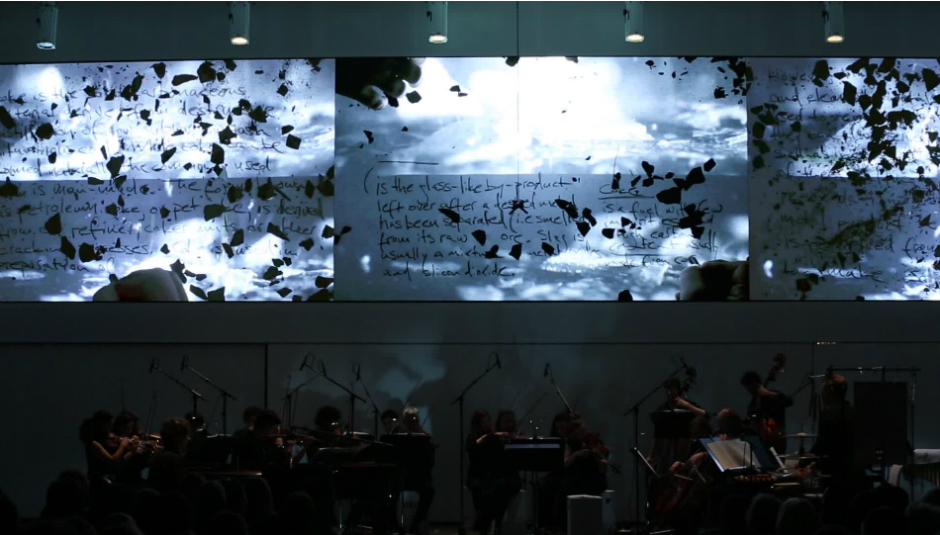At the tail end of last year, the Berlin-Brandenburg fiscal court decreed legendary techno destination Berghain to be of such cultural significance that it deserved the same tax-exemption status as the city’s best concert halls. (To put that in some perspective: that very same month Islington Council revoked Fabric’s license). This fact has little directly to do with our being in the city of Berlin tonight, but it does point to a certain spirit of inclusivity—a healthy suspicion of unhelpful cultural subdivisions—that seems to pervade cultural life in the German capital. It’s not at all surprising, for instance, that it should be the home of Neue Meister, the contemporary music annexe of esteemed label Berlin Classics. The label functions on roughly the same logic: while it is true that exists to showcase some of the brightest talent working in the area of modern classical, it does so without snooty prejudices. Their roster includes razor-sharp modern composers with truly classical pedigrees, but also provides a home for musicians whose work cuts gleefully across other genres. “Modern classical and everything around it,” reads their apt mission statement.
Fittingly, the setting for tonight’s label showcase is neither club nor concert hall, but DRIVE: Volkswagen Group Forum, a remarkably versatile space at the bullseye of the city’s central Mitte district. Car showroom by day, tonight its usual contents have been swept under the rug to reveal an airy performance space, replete with classy lighting and a widescreen projection canvas that spans the width of the stage. With Deutsches Kammerorchester Berlin filling the role of house band, this showcase provides six Neue Meister artists roughly a half-hour opportunity each to exhibit their work.
Damian Marhulets is a clear fit for the label, blending his delicate electronica with orchestral accompaniment in a manner that frequently recalls Ólafur Arnalds and Message to Bears. The set draws from latest release Ecartele, an imagined soundtrack for a 1970s film about a meeting between physicist Wolfgang Pauli and psychoanalyst Carl Gustav Jung which never made it beyond the stage of script and storyboard. If Marhulets’ icy poise sometimes begins to feel a little detached, five-piece “classical band” Spark respond with an energy and virtuosity that is completely human. Here they perform Johannes Motschmann’s Facets Of Infinity. Released on the label earlier this month, it is a piece which demands an unrelenting torrent of notes from the performers, calls for athletic instrument changes, scarcely leaves room for them to catch their collective breath, and, presumably, requires a bolted inner dialogue to keep the thing from falling apart at the seams. Pulitzer Prize winner Caroline Shaw’s Entr’acte follows, a work for orchestra which tugs at the classical canon, manipulating the tropes of Bach and Beethoven to achieve something entirely unique.
Hauschka seems an entirely different prospect following the critical success of last year’s Lion, for which his score with Dustin O’Halloran was nominated for an Oscar, and tonight he is rightly welcomed as some kind of headliner. His five-part work Materials is accompanied by live visuals in which performers manoeuvre letters and shapes across a video backdrop to display the names of chemicals elements and their symbols. Volker Bertelmann’s calling card has always been the prepared piano, an approach to the instrument that involves placing objects (from stationary to scrap metal and anything in between) onto the strings in order to fundamentally alter their sound. The creaking, quietly menacing effect of the piece proves, once again, that the mechanical jerks of Hauschka’s instrument makes for a sublime pairing with the elegance of an orchestra, and the work is rapturously received.
If there must be a criticism, it’s that at over three hours long there are certainly a few too many köche in the küche tonight, and by this point, the broth is starting to suffer. The penultimate slot of the evening proves something of a short straw for Christian Jost, as eyes, ears, and legs around the place appear to be failing fast. A shame, becauseGhost Song—his piece based on The Doors’ song of the same name—displays an expertise and a control over the orchestra that is unmatched all evening. Taking responsibility for conducting duties, he manipulates the ensemble with absolute skill, twisting and turning the music at his whim. Sill, the audience is slightly more receptive to the less challenging sounds of Kai Schumacher, and his piano-led arrangement of the opening section of Steve Reich’s Electric Counterpoint, in particular, is an adrenaline shot felt around the room. The piece that follows, Beauty In Simplicity, recalls the seamless arpeggiations of Lubomyr Melnyk, but slowly introduces electronic elements to build to a cinematic climax that seems to ring on long after the musicians have stopped playing.
It’s notable that this central venue is full throughout, and when seats are quickly filled, many happily occupy standing space at the back of the room. In both Neue Meister and the city of Berlin, these six composer-performers seem to have found an incredibly appreciative home.






















